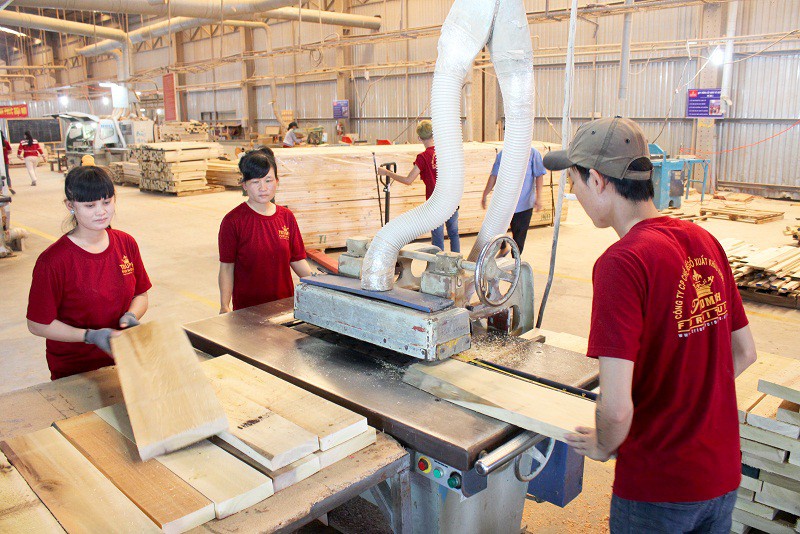Vietnam plywood may escape US anti-dumping probe
Vietnamese products made from local materials or imported from countries other than China could escape anti-dumping sanctions.
The fact that the amount of wood harvested annually in Vietnam is sufficient to produce 8.4 million cubic meters of plywood, four times higher than the exported volume, may help the country win over US accusations of the product using Chinese components to circumvent US duties on imports from China.
| Vietnamese products made from local materials or imported from countries other than China could escape anti-dumping sanctions. |
In 2019, total export of hardwood plywood in Vietnam reached 2.5 million cubic meters, significantly lower than the country’s production capacity, Tuoi Tre cited a report from the Trade Remedies Authority of Vietnam.
As a result, Vietnam is capable to provide sufficient input materials for domestic plywood production. Under the US perspective, Vietnamese products made from local materials or imported from countries other than China could be exempted from anti-dumping duties.
At a press conference on June 11, Spokesperson of the Vietnamese Ministry of Foreign Affairs (MoFA) Le Thi Thu Hang urged any possible US probe into plywood imports from Vietnam should be fair.
Vietnam remains steadfast on enhancing bilateral trade–economic–investment relations with the US towards building harmonious, sustainable and mutually beneficial ties, Hang added.
Hang stated Vietnam is committed to adhering by WTO rules and has been focusing on fighting against trade fraud and the circumvention of customs duties.
According to the Ministry of Industry and Trade, after initiating a probe, the US would send questionnaires to traders related to Vietnam for more information.
The US Department of Commerce (DOC) would take into account five factors to determine whether a product from certain country is considered to have circumvented trade protection measures, including (i) the level of investment; (ii) the level of research and investment; (iii) the nature of the production process; (iv) the extent of production facilities; and (v) whether the value of the processing performed in the country represents a small proportion of the value of the merchandise imported into the US.
In case the DOC concludes Vietnam’s hardwood plywood is in fact has circumvented US duties, the product would face anti-dumping duty of 183.6% and anti-subsidy duties ranging up to 194.9%, similar to those from China.
In 2019, Vietnam exported around US$300 million worth of plywood to the US.











